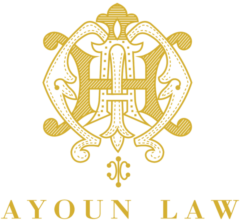Navigate the legal landscape in Ontario! Explore options from legal aid to pro bono services for informed decisions.

Essential Tips for Ontario Legal Advice Selection Success
Choosing Between Legal Professionals in Ontario
Navigating the legal landscape in Ontario can be challenging. Whether you’re dealing with family law issues, real estate transactions, or immigration matters, deciding between hiring a lawyer or a paralegal is crucial for achieving the best outcomes.
Understanding the Role of Lawyers and Paralegals
In Ontario, lawyers and paralegals serve distinct roles within the legal system.
Lawyers are licensed professionals who provide comprehensive legal services. They can represent clients in various legal matters, including courtroom litigation, negotiations, and drafting legal documents. Lawyers complete extensive education and training, including law school and required licensing examinations.
Paralegals, on the other hand, are trained to assist clients with specific legal tasks under the supervision of a lawyer. They can handle certain types of matters independently, such as small claims court cases and some aspects of legal research. However, their scope is limited compared to that of a fully licensed lawyer.
Key Differences Between Lawyers and Paralegals in Ontario
When comparing lawyers and paralegals in Ontario, several key differences should be considered:
| Aspect | Lawyers | Paralegals |
|---|---|---|
| Education/Training | Completion of a law degree and bar admission | Specialized diploma or certification |
| Representation | Can represent clients in all legal matters | Limited to certain areas, such as small claims |
| Legal Practice | Handles complex legal issues and court cases | Assists with less complex legal tasks |
| Fees | Typically higher, can charge hourly, flat, or contingency fees | Usually lower than lawyers, often charge hourly or flat fees |
| Specialization Options | Greater ability to specialize in multiple disciplines | Focused on specific areas of law |
When deciding between hiring a lawyer or a paralegal, consider the complexity of your case. Cases involving significant legal complications or the need for court representation are better suited for lawyers, while more straightforward matters may be adequately handled by a paralegal.
For additional guidance on selecting the right legal professional, explore our resource on ontario legal representation options to help you assess various legal avenues. Understanding the roles and differences between these two professions is critical for making informed choices about your legal needs.
Factors to Consider for Legal Advice Selection
When selecting legal advice in Ontario, several factors should guide your decision to ensure you find a suitable legal professional that meets your needs.
Specialization and Expertise
Choosing a legal professional with the right specialization is crucial. Different areas of law require different expertise. For instance, a family lawyer is focused on child custody or divorce cases, while a real estate lawyer is adept at property transactions. Understanding the specific needs of your case helps in identifying the appropriate legal expert.
| Area of Law | Lawyer Type |
|---|---|
| Family Law | Family Lawyer |
| Real Estate Law | Real Estate Lawyer |
| Immigration Law | Immigration Lawyer |
| General Legal Issues | General Practitioner |
Consider exploring specialized legal services through our article on ontario lawyer services comparison.
Firm Size and Resources
The size of a law firm can affect the level and type of service you receive. Larger firms may have more resources and a wider range of expertise, while smaller firms or boutique firms often provide personalized attention and tailored services.
| Firm Size | Advantages | Disadvantages |
|---|---|---|
| Large Firm | Extensive resources, multiple specialists | Less personalized service |
| Small Firm | Personalized attention, agile decision-making | May lack extensive resources |
| Boutique Firm | Specialized knowledge in niche areas | Potentially limited range of services |
You can learn more about the differences between firm types in our article on ontario legal representation options.
Cost Structure: Contingency Fees vs. Hourly Rates
Understanding the cost structure is essential for budgeting your legal expenses. Many legal professionals offer different pricing models including contingency fees and hourly rates.
| Pricing Model | Description | Best Suited For |
|---|---|---|
| Contingency Fees | Payment is contingent on winning the case | Personal injury cases |
| Hourly Rates | Charges based on the time spent on the case | General legal services |
| Flat Fees | A fixed fee for specific services | Simple legal tasks |
For further insights into costs, see our article on ontario legal assistance comparison.
Legal Processes: Mediation vs. Court Proceedings
Different legal issues may require different processes. Mediation is often less adversarial and can lead to quicker resolutions, whereas court proceedings can be lengthy and costly.
| Legal Process | Characteristics | Pros | Cons |
|---|---|---|---|
| Mediation | Involves negotiation facilitated by a neutral party | Quicker, often less expensive | May not produce a legally binding result |
| Court Proceedings | Formal legal process with a judge and jury | Legally binding decisions | More time-consuming and costly |
To understand which process may fit your situation, explore our discussion on litigation vs arbitration ontario.
Public vs. Private Representation
Deciding between public and private representation is another factor in legal advice selection. Public legal aid serves those with low income, while hiring a private lawyer offers more tailored service.
| Representation Type | Characteristics | Considerations |
|---|---|---|
| Public Representation | Funded by the government, available for eligible individuals | Might have limited resources |
| Private Representation | Paid directly by the client | More personalized service but can be costly |
For more details on representation types, visit our article on ontario legal guidance comparison.
By carefully considering these factors, you can make an informed decision regarding your legal advice selection in Ontario.




Comments (0)